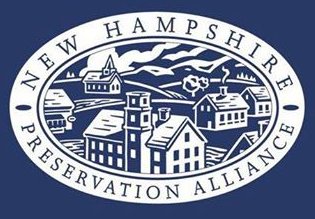Action Needed for Proposal to Unlock More Historic Rehabilitation Activity
May 19th update:
Update on CDFA’s Tax Credit Legislation, a Preservation Alliance priority this year:
On Monday, May 19 the Senate Finance Committee considered an amendment to the state budget which would have increased the funding cap for CDFA's Tax Credit Program from $5 million to $10 million.
The committee’s deliberation of this proposal included agreement on the impact of CDFA’s Tax Credit Program in our communities and its ability to meet New Hampshire’s most pressing needs, most specifically affordable housing. Unfortunately, the uncertainty around general revenue estimates and a significant number of budget priorities resulted in a committee vote not to include the tax credit increase in this year’s Senate-proposed budget.
It is notable that the legislation to increase the tax credit funding cap received a tremendous amount of support from a diverse set of stakeholders, including New Hampshire businesses, non-profit and for-profit housing developers, nonprofits advancing community-based projects, housing advocates and the preservation trades.
The Tax Credit Program has proven to be a valuable and unique state program which incentivizes public-private partnerships to fund local community economic development. We look forward to exploring new opportunities to increase its impact in the future and greatly appreciate your continued support.
(Thanks to our partners at CDFA for this update).
Background:
The SB 158 proposal this session — to increase CDFA tax credits from $5 to $10 million — received unanimous support from Senate members in the legislative process. The bill’s prime sponsor is Senator Daniel Innis. Other sponsors include Senator Ruth Ward, Senator Rebecca Perkins Kwoka, Senator David Watters, Senator Timothy Lang, Senator Cindy Rosenwald, Senator Donovan Fenton and Representative Maureen Mooney. SB158 was laid on the table by the Senate with the hopes that it could be included in the budget as the Senate learned more about state revenue projections this spring.
“New Hampshire has a significant need for housing, which is compounded by increasing median sales prices, high rental prices, low vacancy rates, and more individuals experiencing homelessness,” stated Katherine Easterly Martey, Executive Director, CDFA. “CDFA’s Tax Credit Program is a proven and effective tool for providing New Hampshire communities the resources necessary to solve complex challenges, including increasing access to quality, affordable housing. Increasing the resources available to communities to address New Hampshire’s housing challenges – while incentivizing public-private partnerships to accomplish our collective goals – can create long-term, positive impacts and help grow economic activity.”
Jennifer Goodman, executive director of the N.H. Preservation Alliance, noted that the Preservation Alliance and allied organizations had considered other ways to bring more high-impact rehabilitation investment to New Hampshire, and working through CDFA’s program seems by far the most efficient and impactful. CDFA has a proven track record of successful projects, of smart investments that leverage substantial additional resources, of demand by good projects outstripping available credits, and of small and large businesses eager to participate in the program. She also noted that labor-intensive historic preservation projects that could use these credits support high-wage jobs, conserve energy and resources, keep more revenue circulating locally than new construction, and benefit a broad range of communities.
More information here:
This proposal started this legislative session as SB 158. Speakers from communities across New Hampshire attended the January 29th Senate Ways and Means Committee hearing in Concord to voice their support for the legislation and the positive impacts it would have on the state’s community economic development priorities. Supporters included non-profit and for-profit housing developers, New Hampshire businesses and nonprofits advancing community-based projects. Testimony at today’s public hearing emphasized how the additional tax credits could unlock new redevelopment opportunities, provide critical resources to incentivize and support housing projects and achieve local priorities using public-private partnerships.
Arron Sturgis, owner of Preservation Timber Framing, offered the Committee that increasing the tax credit cap to $10 million creates new opportunities to redevelop existing properties into the housing we need and become an important tool for creating good paying jobs that will keep a young and growing workforce in our communities.
Eric Chinburg, President of Chinburg Properties, spoke of his 30+ years redeveloping old mills and other buildings and offered examples of properties that will remain vacant or under-utilized if additional incentives aren’t available.
Harrison Kanzler, Executive Director of AHEAD, a nonprofit affordable housing developer in the North County, offered the following: “We have to navigate a complex landscape of funding sources and regulatory barriers to develop the housing our communities need. CDFA’s Tax Credit Program is easy-to-use, deeply impactful for the North Country and a phenomenal asset to the State of New Hampshire. In the rural North County, we are not able to build large-scale housing developments. There are so many opportunities to revitalize our downtowns if we have the programs and resources to support those efforts, like CDFA’s Tax Credit Program. The program also allows local employers to support a fully vetted housing project and be a part of the solution to our local housing challenges.”
Dan Enxing, owner of Volvo Cars Exeter is long-time business donor to CDFA’s Tax Credit Program and has supported critical housing and community economic development initiatives through the program for more than a decade. During today’s hearing, Mr. Enxing emphasized the impact the program has had in New Hampshire communities and the opportunity to create more housing and spur job growth by increasing the program cap to $10 million.
Here's an overview from the Manchester Ink Link: https://manchester.inklink.news/nh-cdfa-tax-credit-hike-would-boost-housing-workforce-supporters-say/
Questions? Suggestions? Contact Jennifer Goodman, N.H. Preservation Alliance at jg@nhpreservation.org.
